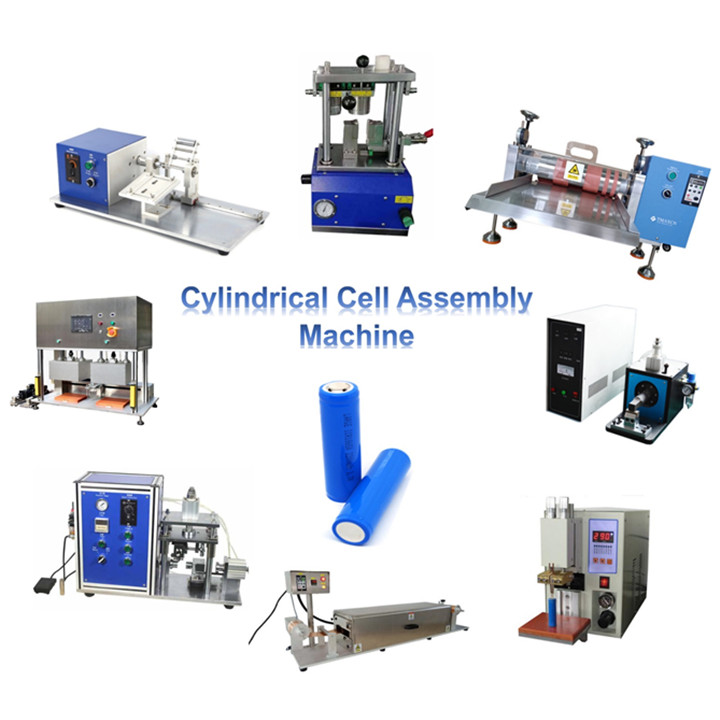A "Cylindrical Cell Assembly line" refers to equipment and machinery used in the manufacturing process of cylindrical lithium-ion battery cells. Here's a detailed overview:
Materials Preparation:
Raw Material Handling: Raw materials such as electrode powders, binders, and conductive additives are processed and prepared for electrode manufacturing.
Mixing Systems: Advanced mixing machines ensure thorough blending of materials, promoting uniformity and consistency in the electrode formulation.
Coating and Calendaring:
Electrode Coating Machine: Precision coating machines apply a controlled layer of electrode materials onto the current collectors. Advanced coating technologies, like doctor blade systems, enhance uniformity.
Calendaring Equipment: High-precision calendaring machines compress and shape the coated electrode materials to the desired thickness, ensuring uniform density.
Winding:
Automated Winding Machines: These machines precisely wind the coated electrode materials around a central core, ensuring uniform tension and alignment during the winding process.
Tension Control Systems: Automated systems maintain consistent tension throughout the winding process to ensure uniform cell construction.
Assembly:
Cell Stacking Automation: Automated systems stack the wound electrodes together with separator layers, precisely aligning the components to form the cylindrical cell structure.
Laser Welding Systems: High-precision laser welding machines securely weld the cell's cylindrical metal casing, forming a hermetically sealed enclosure.
Electrolyte Filling:
Cylindrical Cell Lab line: These machines precisely inject the required amount of electrolyte into each cell, ensuring optimal performance and electrolyte distribution.
Formation:
Controlled Environment Formation Chambers: Cylindrical cells undergo a meticulous formation process in controlled environments, subjecting them to specific charge and discharge cycles to stabilize and activate the cells.
Inspection and Testing:
Automated Visual Inspection Systems: High-resolution cameras and AI-driven systems inspect the exterior of each cell for defects or irregularities.
Quality Control Stations: Advanced testing stations verify the cells against stringent performance standards for capacity, voltage, internal resistance, and other parameters.
Safety Testing Equipment: Systems assess safety features, including response to overcharging, short circuits, and thermal conditions.
Tab Welding:
Automated Tab Welding Machines: These machines precisely weld metal tabs to the electrodes, ensuring secure electrical connections and minimizing internal resistance.
Labeling and Packaging:
High-Speed Labeling Machines: These machines efficiently apply labels with essential information, including specifications, safety warnings, and barcodes.
Automated Packaging Lines: Systems for precise and efficient packaging of finished cylindrical cells, incorporating protective measures to prevent damage during transport.
Research and Development (R&D):
Prototyping Facilities: Dedicated spaces equipped with tools for developing and testing prototype cylindrical cells with innovative designs and materials.
Process Optimization Tools: Advanced equipment for continuous improvement and optimization of the cylindrical cell fabrication processes, including advanced analytics and machine learning.
Data Collection and Analysis Tools:
Integrated Data Logging Systems: Comprehensive software and tools for collecting, analyzing, and interpreting data from various stages of the manufacturing process. Real-time monitoring ensures quality control and process optimization.
By incorporating these advanced technologies and processes, a cylindrical cell fabrication machine setup ensures not only the mass production of high-quality cylindrical lithium-ion battery cells but also continuous improvement through research, development, and data-driven optimization.

 fr
fr en
en de
de ru
ru es
es pt
pt ko
ko tr
tr pl
pl th
th







 réseau ipv6 pris en charge
réseau ipv6 pris en charge